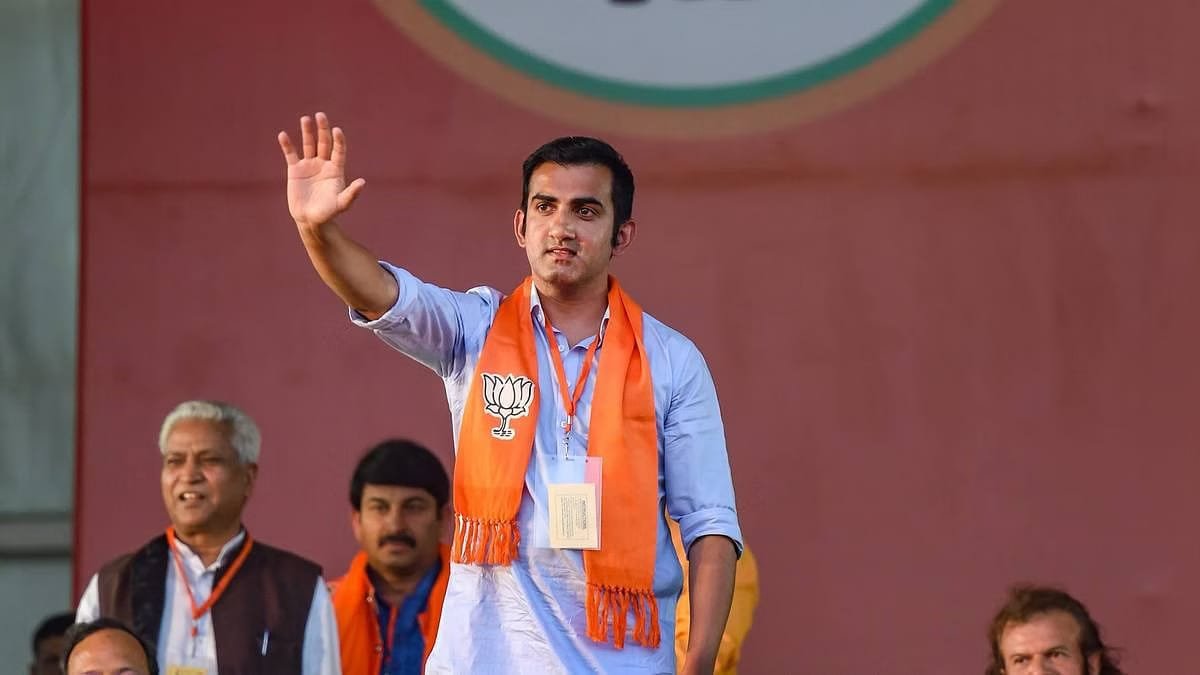
Gautam Gambhir’s Controversial Appointment as Indian Cricket Team Head Coach
The recent appointment of Gautam Gambhir as the head coach of the Indian cricket team has sparked a mix of reactions within the cricketing community and among fans. While some celebrate his new role, others are critical, questioning the process behind his selection. This article delves into the criticisms surrounding Gambhir’s appointment, focusing on his close political ties, the overlooked veteran candidates, and the transparency issues within the BCCI.
Close Political Connections
Gambhir’s Political Background
Gautam Gambhir, a former Indian cricketer and East Delhi MP from the Bharatiya Janata Party (BJP), has decided to step down from active politics to focus on his cricket commitments. This move has raised eyebrows, especially considering his appointment as the head coach of the Indian cricket team shortly after his resignation from politics. Critics argue that his close alliance with the BJP played a significant role in his new coaching role.
Influence of Jay Shah
BCCI Secretary Jay Shah, who is also the son of Amit Shah, India’s Home Minister, announced Gambhir’s appointment on social media. This connection has led to allegations of favoritism and political influence in the selection process. The timing of Gambhir’s political resignation and his subsequent appointment as head coach seems more than coincidental, prompting concerns about the integrity of the decision-making process within the BCCI.
Overlooked Veteran Candidates
Qualified Contenders
Several highly qualified former players were considered for the head coach position, including Gautam Gambhir (coach of Kolkata Knight Riders), Stephen Fleming (coach of Chennai Super Kings), Justin Langer (coach of Lucknow Super Giants), and Mahela Jayawardene (global performance head of Mumbai Indians). Each of these candidates brings extensive experience and proven track records in coaching at the highest levels of the game.
Lack of Transparency
Despite the impressive credentials of these candidates, the BCCI has not provided clear reasons for their exclusion from the final selection. The lack of transparency in the selection process has fueled suspicions of favoritism. Critics argue that the BCCI should have conducted a more transparent and merit-based selection process, ensuring that the best candidate was chosen based on their qualifications and experience, rather than political connections.
Salary Negotiations and Favoritism
Salary Discrepancies
Reports suggest that Gautam Gambhir’s appointment was delayed due to ongoing salary negotiations between him and the BCCI. This has led to speculation that Gambhir might have secured a higher salary due to his close connections within the BCCI and his political alliances. The potential for preferential treatment in salary negotiations undermines the fairness of the selection process and raises questions about the BCCI’s commitment to meritocracy.
Arbitrary Selection Process
The BCCI’s failure to provide a clear rationale for not selecting other highly qualified candidates further adds to the perception of an arbitrary and biased selection process. Without transparent criteria and explanations, it is difficult to understand why Gambhir was chosen over other candidates who have demonstrated exceptional coaching abilities and success in their respective roles.
The Role of Political Influence in Sports
Conflict of Interest
The intertwining of politics and sports is not new, but it raises significant ethical concerns. When political influence plays a role in sports administration, it can lead to conflicts of interest and undermine the credibility of decisions. In Gambhir’s case, his close association with the BJP and the influential role of Jay Shah in the BCCI have created a perception of conflict of interest, calling into question the integrity of the selection process.
Impact on Team Morale
The perception of favoritism and political influence in Gambhir’s appointment could also impact the morale of the Indian cricket team. Players may feel that merit and performance are secondary to political connections, leading to dissatisfaction and lack of motivation. It is essential for sports organizations to maintain a clear separation between politics and sports to ensure that decisions are made based on merit and the best interests of the team.
Need for Transparent and Merit-Based Selection
Establishing Clear Criteria
To avoid future controversies, the BCCI should establish clear and transparent criteria for the selection of coaches and other key positions. These criteria should be based on qualifications, experience, and performance, ensuring that the best candidates are chosen. Transparent selection processes help build trust among players, fans, and stakeholders, promoting a fair and merit-based system.
Independent Selection Committee
An independent selection committee, free from political influence, should be appointed to oversee the selection process for key positions within the BCCI. This committee should include former players, coaches, and other experts who can make impartial decisions based on merit. By involving independent and qualified individuals, the BCCI can enhance the credibility and fairness of its selection processes.
The appointment of Gautam Gambhir as the head coach of the Indian cricket team has sparked significant controversy and criticism. His close political connections, the overlooked veteran candidates, and the lack of transparency in the selection process have raised serious concerns about favoritism and political influence within the BCCI. To restore trust and ensure fairness, the BCCI must adopt transparent and merit-based selection processes, free from political interference. Only then can the true spirit of sportsmanship and excellence be upheld in Indian cricket.
